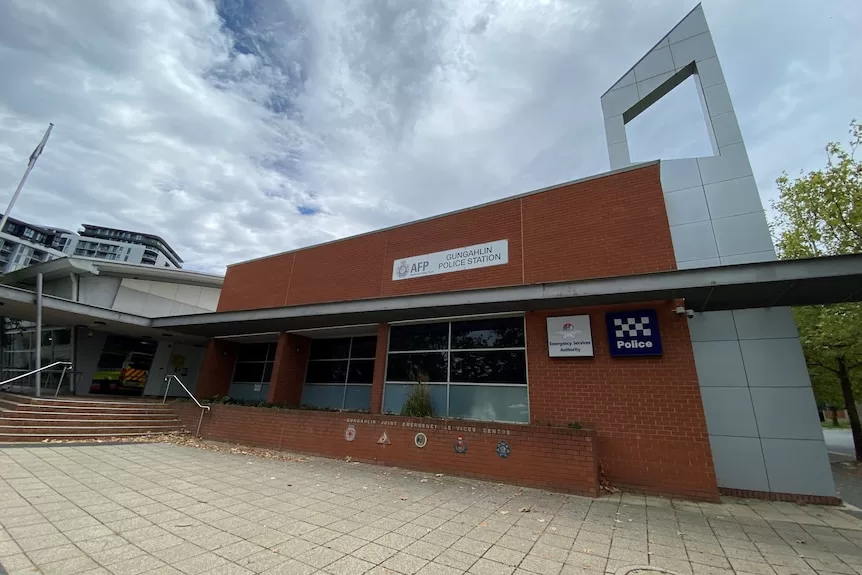- In short: The discovery of lead dust and diesel particulates at Gungahlin’s emergency services station has forced most staff to temporarily relocate to Belconnen.
- The Emergency Services Agency is reassuring the community the disruption will not impact emergency response times.
- What’s next? The investigation into the contaminants is being handled by a contractor but there are calls for the ACT government to probe the safety of all emergency services buildings and assess the health of workers.
Police and emergency services workers based in Gungahlin have been dispersed to stations across Canberra’s north as unions urge further testing for potential poisons.
Contractors working on renovations at the 25-year-old Joint Emergency Services Centre (JESC) in Gungahlin identified lead and diesel particulates in a section of the building yesterday.
The Emergency Service Agency (ESA) has stressed the disruption will not compromise response times.
“Call triple-0 and we’ll be there,” ESA Commisioner Wayne Phillips said.
ACT United Firefighters Union (UFU) secretary Greg McConville described the discovery of the potentially dangerous substances as “of the gravest concern”, questioning how long emergency services personnel might have been unknowingly exposed.
“Emergency services personnel … and community members visiting the JESC for decades may have been exposed to deadly lead dust and diesel particulates on a daily basis,” Mr McConville said.
He has called for health assessments for all workers at the site and said he has written to WorkSafe ACT “urging an investigation with a view to prosecution”.
A WorkSafe ACT spokesman said inspectors had attended the JESC in Gungahlin this morning and “were satisfied that the risks were being effectively managed”.
“No regulatory notices have been issued,” the statement added.
Australian Federal Police Association (AFPA) president Alex Caruana has also called for a probe.
“We think a thorough investigation needs to take place to reveal what the extent of this contamination is … and how many people may have been affected,” Mr Caruana said.
Union calls out issues plaguing other major stations
The issues at Gungahlin come just weeks after most staff were pulled out of City Police Station due to flooding, which Mr Caruana said he believed had disturbed bonded asbestos in the building.
He also pointed to issues at Woden Police Station, saying staff had reported temperatures of around 40 degrees Celsius within the building.
“The heating and cooling in the circulation system in the building is not up to scratch and is not capable of maintaining the constant temperature,” Mr Caruana said.
In a statement, ACT Policing said Gungahlin community members should not be concerned that their police station was closed.
They also said Woden’s air conditioning had since been fixed.
“While officers will temporarily locate to Belconnen, they will place an emphasis on being out in the Gungahlin district as much as possible,” the spokeswoman said.
Canberra Liberals police and emergency services spokesman James Milligan argued the changes were placing additional stress on frontline staff.
“I’m sure that the travel and time between Belconnen and [Gungahlin] may add further stress and anxiety,” he said, echoing calls for the ACT government to investigate.
The spokeswoman said “there is nothing to indicate any airborne asbestos contamination has been identified at City Station”.
Commissioner confident in response times
ESA Commissioner Wayne Phillips said he was confident the disruption at Gungahlin would not affect emergency response times.
“We’ve positioned our fire trucks in optimal areas … and ambulance services are very mobile, they drive around from call to call,” he said.
He said the initial investigation into the contaminants was being handled by a contractor with the aim of finding the source.
“Lead in buildings of this age is very uncommon, I have to say. So, part of the investigation will be into the origins of the lead.”
Mr Phillips was unsure about a timeline but stressed no staff would return to the building before it was declared safe.
